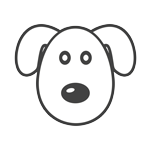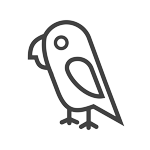
Understanding Puppy Development Stages & Behaviour Guide
Welcoming a new puppy into your home is an exciting adventure filled with joy, challenges, and a lot of learning. Just like humans, puppies go through various developmental stages, each with its unique milestones and behaviours. Understanding these stages is crucial for fostering a well-adjusted and healthy canine companion.
This comprehensive guide delves into each phase of puppy development, providing insights into behavioural changes, training strategies, and health considerations to help you navigate your puppy's growth journey successfully.
The Importance of Understanding Puppy Development
Understanding the different stages of puppy development is more than just a fascinating insight into their growth; it is essential for providing the appropriate care, training, and socialisation at each phase. By recognising the unique needs and behaviours of your puppy during these stages, you can tailor your approach to nurturing, training, and bonding with them. This knowledge can help prevent future behavioural issues and promote a balanced, well-adjusted adult dog.
Puppy Development Timeline
Every puppy progresses through distinct developmental stages, each marked by specific physical, behavioural, and social milestones. Knowing what to expect during each stage allows you to support your puppy's growth effectively.
Neonatal Stage (0-2 Weeks)

During the neonatal stage, puppies are entirely dependent on their mother for warmth, nutrition, and care. Their senses are not fully developed, and they rely on reflexive behaviours to interact with their environment.
- Physical Development: Puppies are born with their eyes and ears closed, and their movements are limited to crawling and seeking warmth. They spend most of their time sleeping and eating.
- Behavioural Traits: Reflexive behaviours dominate this stage, such as suckling and twitching during sleep. Puppies may emit soft sounds to communicate with their mother and littermates.
- Care Tips: It's crucial to ensure the mother is in a comfortable and stress-free environment, as her care is vital for the puppies' survival and early development. Avoid handling the puppies excessively during this stage to prevent undue stress.
Transitional Stage (2-4 Weeks)

This stage marks a significant period of sensory development. Puppies begin to open their eyes and ears, and they start to experience the world around them for the first time.
- Physical Development: Puppies' eyes and ears open, allowing them to see and hear. Their mobility improves as they begin to stand, walk, and explore their surroundings. Their teeth also start to emerge.
- Behavioural Traits: Puppies start to exhibit curiosity about their environment. They begin to interact with their littermates, learning basic social skills through play and mimicry.
- Care Tips: Gently handle the puppies to help them get used to human touch. Introduce soft toys and safe objects to explore, encouraging their natural curiosity and aiding in their sensory development.
Socialisation Stage (4-12 Weeks)

The socialisation stage is one of the most critical periods in a puppy's life. This is when puppies learn important social skills and behaviours that will shape their interactions with humans and other animals throughout their lives.
- Physical Development: Rapid growth occurs during this stage, and puppies start to develop better motor skills. They become more agile and coordinated in their movements.
- Behavioural Traits: Puppies are highly curious and eager to explore. They begin to develop their personalities and learn social behaviours through play with littermates and interactions with humans. This stage is also when they learn bite inhibition, which is crucial for preventing future biting behaviour.
- Care Tips: Expose your puppy to a variety of environments, sounds, people, and other animals to foster positive social experiences. Enrol in a puppy socialisation class if possible, and use positive reinforcement to encourage desirable behaviours. This is also the ideal time to start basic training and housebreaking.
Juvenile Stage (3-6 Months)

During the juvenile stage, puppies become more independent and start to test boundaries. This phase is akin to the "toddler" stage in human children, where they explore their independence while still relying on guidance.
- Physical Development: Teething begins in earnest during this stage, as puppies lose their baby teeth and their adult teeth start to come in. They continue to grow rapidly and develop stronger muscles.
- Behavioural Traits: Puppies may become more assertive and independent, testing limits and exploring their surroundings with increased confidence. They may also experience a second "fear period," where they become more cautious or fearful of new things.
- Care Tips: Continue training with consistency and patience, reinforcing positive behaviours. Provide appropriate chew toys to help with teething and prevent destructive chewing. Be mindful of the potential fear period and introduce new experiences gradually.
Adolescence (6-18 Months)

The adolescent stage can be challenging for pet parents as puppies go through hormonal changes and continue to assert their independence. This stage requires patience and continued training to manage.
- Physical Development: Sexual maturity occurs during this stage, and growth plates begin to close, signalling the end of rapid physical growth. You may notice growth spurts and changes in body structure.
- Behavioural Traits: Adolescence is marked by increased energy levels, independence, and the testing of boundaries. Puppies may exhibit "selective hearing," ignoring commands they previously responded to reliably.
- Care Tips: Maintain a structured routine and continue with training and socialisation to manage behavioural challenges. Reinforce commands and introduce more advanced training exercises to keep your puppy mentally stimulated. Patience is key during this stage, as adolescent behaviours can be testing.
Common Puppy Behaviours and How to Handle Them

Understanding typical puppy behaviours can help you manage and correct them effectively, preventing them from becoming problematic habits as your puppy grows.
Chewing and Teething
Chewing is a natural behaviour for puppies, especially during the teething phase, which helps relieve discomfort as their adult teeth come in.
- Why They Do It: Chewing helps puppies alleviate the pain of incoming adult teeth and explore their environment.
- Managing Chewing: Provide a variety of safe chew toys to redirect this behaviour and protect your belongings. Ensure the toys are appropriate for your puppy's age and size. Puppy-proof your home by keeping shoes, electrical cords, and other potential hazards out of reach.
Biting and Nipping
Puppies often bite and nip as a form of play and to explore their surroundings. While this behaviour is normal, it's important to teach bite inhibition to prevent future aggressive biting.
- Why They Do It: Biting and nipping are part of natural play and a way for puppies to interact with their environment and learn boundaries.
- Managing Biting: Teach bite inhibition using positive reinforcement techniques. When your puppy bites too hard, let out a high-pitched yelp to signal that it hurts, and then redirect them to a toy. Consistently reinforce gentle play and avoid playing with your hands to prevent reinforcing biting behaviour.
Barking
Barking is a form of communication for puppies, but excessive barking can become a nuisance if not managed appropriately.
- Why They Do It: Puppies may bark out of excitement, boredom, fear, or as a way to get attention.
- Managing Barking: Identify the cause of the barking and address it. For example, if your puppy barks out of boredom, provide more mental and physical stimulation through play and exercise. Use positive reinforcement to reward quiet behaviour, and avoid reinforcing barking by giving into demands when they bark.
Effective Training and Socialisation Strategies

Early training and socialisation are key to raising a well-mannered and sociable dog. The techniques used during these stages will lay the foundation for your puppy's behaviour throughout their life.
Positive Reinforcement Training
Positive reinforcement is a highly effective training method that encourages desired behaviours by rewarding your puppy with treats, praise, or play. This method helps build a strong foundation for learning and strengthens the bond between you and your puppy.
- Benefits: Positive reinforcement creates a positive learning environment and helps your puppy associate good behaviour with rewards. It encourages them to repeat desired behaviours, making training more effective and enjoyable for both of you.
- Techniques: Start with basic commands such as "sit," "stay," "come," and "leave it." Use treats or toys as rewards, and gradually reduce the reliance on treats as your puppy becomes more proficient. Consistency is key, so practice commands in various environments to reinforce learning.
Socialisation Best Practices
Proper socialisation helps puppies develop into well-adjusted adults by exposing them to different environments, people, and animals in a controlled and positive manner.
- Why It Matters: Socialisation helps prevent behavioural issues such as fear and aggression. Puppies that are well-socialised are more confident and better equipped to handle new situations and environments.
- Tips: Introduce your puppy to a wide range of experiences, including different types of people, animals, sounds, and surfaces. Arrange playdates with other vaccinated puppies and friendly dogs. Use positive reinforcement to reward calm and friendly interactions, and avoid forcing your puppy into situations that may overwhelm them.
Addressing Puppy Behavioural Challenges

Puppyhood comes with its set of challenges, but understanding and addressing these issues early on can prevent them from becoming ingrained behaviours.
Separation Anxiety
Puppies can develop separation anxiety when left alone, leading to distress and destructive behaviour. Addressing this issue early is crucial to preventing long-term anxiety problems.
- Symptoms: Signs of separation anxiety include excessive barking, whining, destructive chewing, and attempts to escape when left alone.
- Solutions: Gradually accustom your puppy to being alone by starting with short periods and gradually increasing the duration. Create a safe, comfortable space for them with their bed and toys. Use calming aids such as pheromone diffusers or calming music to help ease anxiety. Avoid making a big fuss when leaving or returning home to reduce anxiety around your departures.
Fear and Phobias
Puppies may develop fears and phobias due to negative experiences or a lack of socialisation. Addressing these fears early can help prevent them from becoming more severe.
- Common Triggers: Common triggers for fear include loud noises, strangers, and unfamiliar environments.
- Handling Fear: Use positive reinforcement and desensitisation techniques to build your puppy's confidence. For example, if your puppy is afraid of a particular noise, start by exposing them to a quieter version of the sound while rewarding them with treats. Gradually increase the intensity of the sound over time. Never force your puppy to confront their fears, as this can worsen anxiety.
The Role of Nutrition and Health in Puppy Development

Proper nutrition and regular veterinary care are critical components of a puppy's growth and development. Providing a balanced diet and ensuring your puppy's health needs are met will set the foundation for a long and healthy life.
Nutritional Needs at Each Stage
Puppies have specific dietary needs that change as they grow. Providing the right nutrients at each stage is essential for supporting healthy development.
- Neonatal and Transitional Stage: During the first few weeks of life, puppies rely on their mother's milk for nutrition. If the mother is not available, a high-quality puppy milk replacer is necessary to provide essential nutrients.
- Weaning and Juvenile Stage: Puppies are weaned off their mother's milk between 4-6 weeks and introduced to solid food. A balanced diet rich in proteins, fats, vitamins, and minerals is essential for growth and development. Choose a high-quality puppy food formulated for their specific needs, and follow feeding guidelines based on their age, size, and breed.
- Adolescence: As puppies approach adulthood, their dietary requirements change. Transition to an adult dog food that suits their breed size and activity level. Monitor their weight and adjust portion sizes to prevent obesity.
Importance of Regular Vet Visits
Routine veterinary care is essential to ensure your puppy stays healthy and on track with their development. Regular check-ups allow for early detection and prevention of health issues.
- Check-ups: Schedule regular vet visits for vaccinations, deworming, and general health checks. Your vet will monitor your puppy's growth, dental health, and overall well-being.
- Preventative Care: Discuss flea, tick, and heartworm prevention with your vet to keep your puppy protected. Regular grooming and dental care are also important aspects of maintaining your puppy's health.
Building a Strong Bond with Your Puppy

Creating a strong bond with your puppy involves more than just training and care; it requires love, patience, and understanding. A strong bond lays the foundation for a lifelong relationship built on trust and mutual respect.
Playtime and Exercise
Engaging in regular play and exercise is vital for your puppy's physical and mental development. Playtime also provides an opportunity for you to bond with your puppy and strengthen your relationship.
- Benefits: Play and exercise help burn off excess energy, reduce boredom, and promote mental stimulation. They also provide an opportunity for socialisation and learning through interactive play.
- Activities: Incorporate a variety of activities into your puppy's routine, such as fetch, tug-of-war, and puzzle toys. Ensure that playtime is a positive experience by using safe, age-appropriate toys and avoiding rough play.
Consistent Routine and Boundaries
Establishing a consistent routine helps your puppy feel secure and understand expectations. Setting boundaries and using positive reinforcement to teach acceptable behaviours are key to creating a harmonious household.
- Routine: Set regular feeding, play, and sleep times to create a sense of predictability for your puppy. A consistent routine helps reduce anxiety and promotes good behaviour.
- Boundaries: Use positive reinforcement to teach your puppy what behaviours are acceptable and which are not. For example, if your puppy jumps up on furniture, gently guide them back to the floor and reward them when they stay down. Consistency and patience are crucial when setting boundaries.
Understanding your puppy's development stages and behaviors is fundamental to raising a well-adjusted and happy dog. A puppy calculator can help you track and anticipate key milestones, making it easier to provide the appropriate care and training for your growing pup. By staying informed and proactive, you can navigate each phase with confidence, fostering a loving and enriching environment for your furry friend. Remember, the key to a successful puppyhood lies in patience, consistency, and plenty of love. Providing the right care, training, and socialization during each stage of your puppy's growth will set the foundation for a lifelong, rewarding relationship with your canine companion.
Ready to strengthen the bond with your new puppy? Browse our selection of pet products at PetPawz to find everything you need for your furry friend's development and care. From cosy beds to engaging toys, we have the essentials to help you and your puppy grow together.










Leave a comment